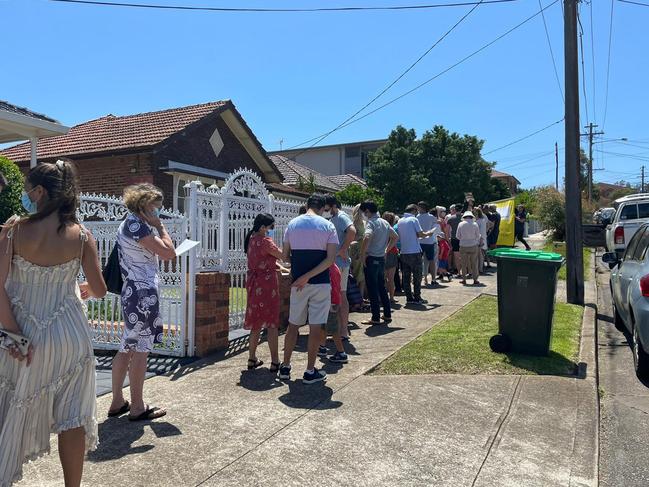Why collecting building and pest reports when buying property is so important
Collecting building and pest reports for homes you may never buy might feel like a waste of money, but just like home or car insurance, it’s a small price to pay to avoid buying a money pit.

Collecting building and pest reports for homes you may never buy might feel like a waste of money – especially at a time when expenses are already adding up – but just like home or car insurance, it’s a small price to pay to avoid buying a money pit.
Property markets have been moving fast, and as a result frustrated buyers are facing competition and rising prices. While some house hunters are tempted to cut a few corners, there are plenty of reasons why they shouldn’t.
MORE: Buyer explains why they paid $1.2m over guide
‘Oops’: buyer bids against herself in costly mistake
THEY REALLY ARE NEEDED
Savvy home buyers can “kick the tyres” during open homes and can do some due diligence by digging online, but they won’t be able to lift the lid like a professional can.
Lloyd Edge, buyer’s agent and founder of Aus Property Professionals, said current market conditions had led some buyers to jump into a purchase without the proper checks. “Some are buying sight unseen, others are buying without doing any building inspections because they’ve got FOMO and worry someone is going to buy before they can,” he said.
“I educate my clients that it’s actually necessary to get reports done.


“If you’re spending hundreds of thousands – for some people it’s millions, on a property, then spending an extra $600 or so on a building and pest report is a minimal expense,” he added.
“And if that means you’ve got to walk away from the property despite that expense. That’s nothing compared to running into problems down the track,” Mr Edge said.
ONLY ORDER AN INSPECTION WHEN YOU’RE READY
There is no need for house hunters to order a building and pest report for every listing they like. “Only get them on properties you are really interested in buying,” Mr Edge said.
“A typical buyer might look at 50 properties, so you don’t want to order 50 reports. That’s going to send you broke and you won’t have a deposit left to pay for the property.”
Ideally, a potential buyer should put an offer in on a property first and get the contract, then order a report.
“If it’s going to auction, then it’s necessary to get your building and pest done before. Because obviously if you’re the successful bidder, you have to buy the property in the condition that it’s in,” he said.

HOW TO READ REPORTS
Building and pest inspections can be long, and jargon-packed, but if a buyer knows how to decipher one then they are less daunting.
“It can be tricky to read them because they contain a lot of information. The first thing to consider is that the inspector is paid to find defects in a property. I always tell my buyers to remember the inspector isn’t there to give a glowing report on the property,” Mr Edge said.
He added that what can appear to be a negative comment, isn’t necessarily.
“The most positive thing a building and pest report will say is ‘typical’ or ‘average’. Some people might read that and think ‘Well that doesn’t sound great’, but that’s actually a good thing. So, it’s all about how you read them,” he explained.
DON’T HANG ON EVERY WORD
Every house has flaws, so a few superficial spots shouldn’t put you off your dream home.
“They really point out everything within the property; what was inspected and what was unable to be inspected because of access issues. Sometimes they also might suggest you get an electrician in, or a plumber, which can be a bit daunting for a buyer because they’ve suddenly got all these things to look into. Often the inspector says that to cover themselves, but it doesn’t actually mean you need to get every one of those professionals in,” he said.

“There will be things that you shouldn’t worry about because sometimes it’s just a case of wear and tear,” he said, adding that buyers should focus on any major problems.
“If there are structural cracks, and not just paint cracks, but clear evidence of movement in the foundations, then that something that can be costly. Also you’ll want to look out for termite damage and rising damp,” he said.
PROBLEMS CAN BE A POSITIVE
“Just because there are faults it doesn’t always mean I’ll walk away from a property. Actually, it can mean I have a chance to negotiate,” Mr Edge said.
He explained that while some problems with a property aren’t ideal, others could be an opportunity to have competition and ultimately a lower price.
“I’ll go and get some quotes from plumbers, or chippies, or whatever I need, and then I’ll go back to the agent and say ‘Okay, it’s going to cost X dollars to repair this so let’s negotiate,” he said
Originally published as Why collecting building and pest reports when buying property is so important

